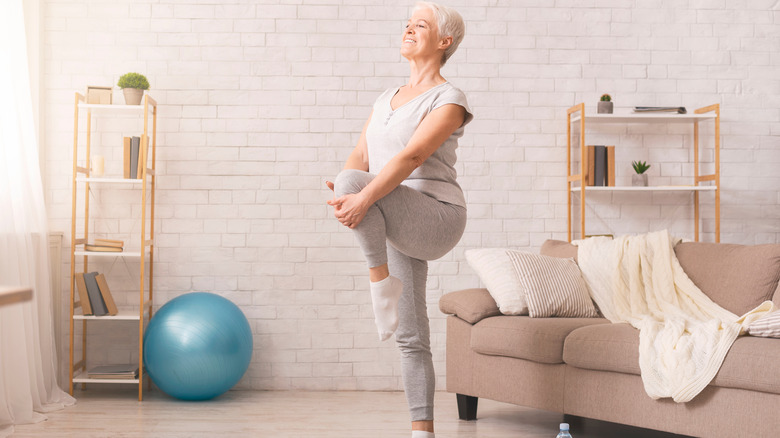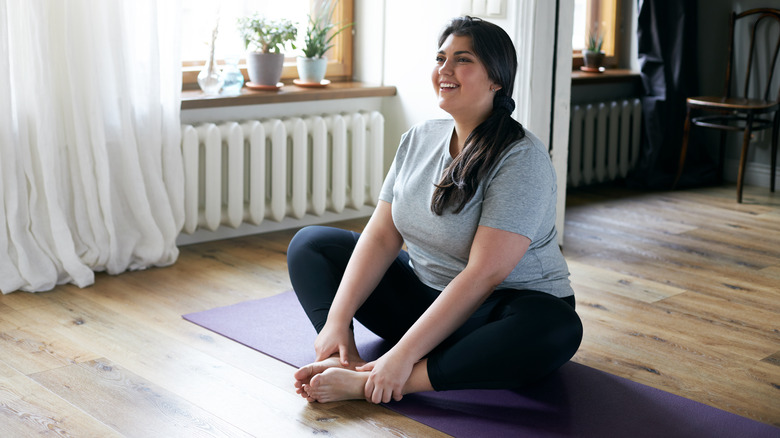The Best Time Of Day To Stretch Might Surprise You
Stretching is a movement that lengthens your muscles, connective tissue, ligaments, and tendons. According to Self, there are two main types of stretching. Static stretching is moving to where you feel a pull, not pain, and holding it there. An example of static stretching is the butterfly stretch, where you sit with your feet together, holding the stretch. On the other hand, dynamic stretching stretches muscles while warming them up, using moves like a lunge.
Stretching has enormous health benefits, and you should never skip your stretching sessions. Stretching can help improve your flexibility and joint range of motion and increase blood flow to your muscles. Better flexibility can improve your fitness and reduce your injury risk. Stretching after your workout has the best benefits because your muscles are warm. Avoid stretching cold muscles before your workout. Instead, use dynamic stretching, a great warmup, then stretch. You should feel a pulling sensation when you stretch, not pain (via Mayo Clinic). Getting a stretching session in after your workout also helps you cool down, according to Self.
You know you need to stretch after your workouts, but there is another time you should be stretching.
Best time to stretch
The best time of day to stretch is before bed, and you should be doing some static stretching. Use a stretching routine at night to help you sleep better, by letting your body know it's time to wind down. Nighttime stretching can help you get rid of the tenseness you've acquired throughout the day and help you get a deeper sleep (via Men's Health).
Agape Physical Therapy recommends nighttime stretching to help you relax and maintain your flexibility. Stretching before bed can help you get your body and mind ready for a good night's sleep. In addition, per the Hospital for Special Surgery, you can improve your sleep quality and muscle recovery through stretching by relieving muscle tension and improving circulation. Another benefit of nighttime stretching is increased comfort and reduced muscle spasms while sleeping. Stretch 30 to 60 minutes before bedtime for the best results.
Warm up your muscles before you stretch. Take a warm bath or shower before your stretching session. Hold every stretch for at least six slow, controlled breaths to help you relax and hold each stretch (via Medical News Today).
Choose stretches that help you with your fitness goals, whether it's improved flexibility, decreased back pain, or simply relaxing before bed. Your evening stretching routine should only take about 10 minutes at the most.


